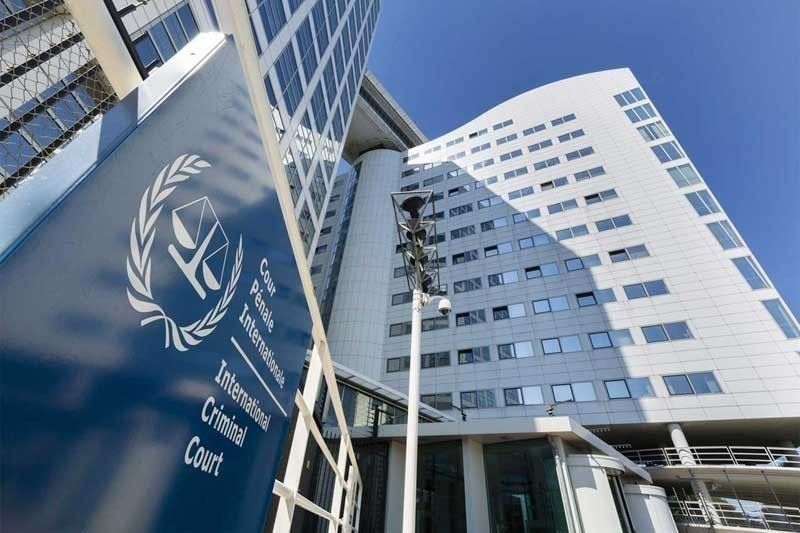Palace: More could follow Philippines, Burundi out of ICC
March 22, 2018 | 7:25pm

Presidential spokesman Harry Roque said that the Internatioanl Criminal Court should not expect cooperation from the Philippines following its notification of withdrawal from the tribunal. Philstar.com/File
MANILA, Philippines — More countries may soon leave the International Criminal Court, a Malacañang spokesman said Thursday, as the Philippines joins the African nation of Burundi in the club of former state-parties.
"There's only 124, now, 123. If reports are accurate, it might even be another state leaving, South Africa, 122. And the major countries such as the United States, Russia and China are not parties to the ICC," Roque said.
To date, only Burundi has withdrawn from the Assembly of State Parties of the ICC.
The country's decision came after an ICC prosecutor launched a preliminary examination following reports of "killing, imprisonment, torture, rape and other forms of sexual violence as well as cases of enforced disappearances."
In authorizing an investigation, the ICC chamber found "reasonable basis" to believe that Burundi state agents and groups implementing state polices launched widespread attacks against the Burundian civilian population.
The attacks targeted those who opposed the ruling party after the announcement of its president, Pierre Nkurunziza, that he was seeking a third term in office in 2015. Nkurunziza also approved a new media law which forbade reporting on matters that could "undermine national security, public order or the economy," the BBC said.
Burundi’s decision triggered other countries like South Africa and The Gambia to threaten withdrawal, but they later reversed these decisions. Kenya and Uganda have not yet acted on their threat to leave.
South Africa threatened to withdraw from the Rome Statute after receiving criticism for ignoring the ICC's order to arrest Sudanese President Omar Hassan al-Bashir in June 2015 for accusations of war crimes and genocide.
South Africa's decision to withdraw was ruled illegal by its own High Court..
The Gambia meanwhile made a 180-degree turn after it elected a new president, Adama Barrow, who succeeded former authoritarian leader Yahya Jamme.
"I've read reports that countries like South Africa, although it has relented from its earlier decision to withdraw from the court, will initiate withdrawal proceedings again. The Philippines is not alone," Roque stressed Thursday.
President Rodrigo Duterte, who decided on withdrawal, has said that he will convince other countries to leave the ICC, which he described as disrespectful.
Last week, Roque said the Philippine withdrawal could mean an "avalanche of other states leaving" the Rome Statute that created the ICC.
"This is the beginning of the end of the court," he said.
Philippines will not cooperate
Roque said in the same briefing Thursday that the International Criminal Court should not expect cooperation from President Rodrigo Duterte in its preliminary examination of allegations of extrajudicial killings in the government's war on drugs.
The pronouncement from the Palace came after Duterte informed the United Nations that the Philippines is withdrawing its ratification of the Rome Statute, the international treaty that established in the tribunal.
With the Philippine decision, the ICC should not expect any cooperation from Manila as its withdrawal, in Duterte’s opinion, is immediately executory.
"I'd like to reiterate that the president's decision was to immediately withdraw. I don't think the ICC can look forward to cooperation from the Philippines as a state-party or a soon-to-be former state-party to the International Criminal Court," Roque said.
"I do not know how the ICC can proceed without cooperation from the Philippine state," said Roque, a lawyer who was at the forefront of the campaign for Manila to join the tribunal.
The tribunal has said that withdrawal has no impact on ongoing proceedings or any matter already under its consideration prior to the date that withdrawal becomes effective.
Under the treaty, which the Palace insists should have been published in the Official Gazette to be valid, withdrawal is effective a year after formal notification of the United Nations.
Last month, a prosecutor at the ICC initiated a preliminary examination into alleged extrajudicial killings in the administration’s war on drugs. This process would determine if the ICC had jurisdiction over the case and would merit a probe into the allegations.
According to Roque, the ICC's continuation of its examination would not pose a problem as the Rome Statue was yet to achieve universal ratification and few countries in Southeast Asia ratified the international agreement.
BrandSpace Articles
<
>
Philstar
- Latest
- Trending
Trending
Latest
Trending
Latest
Recommended





























